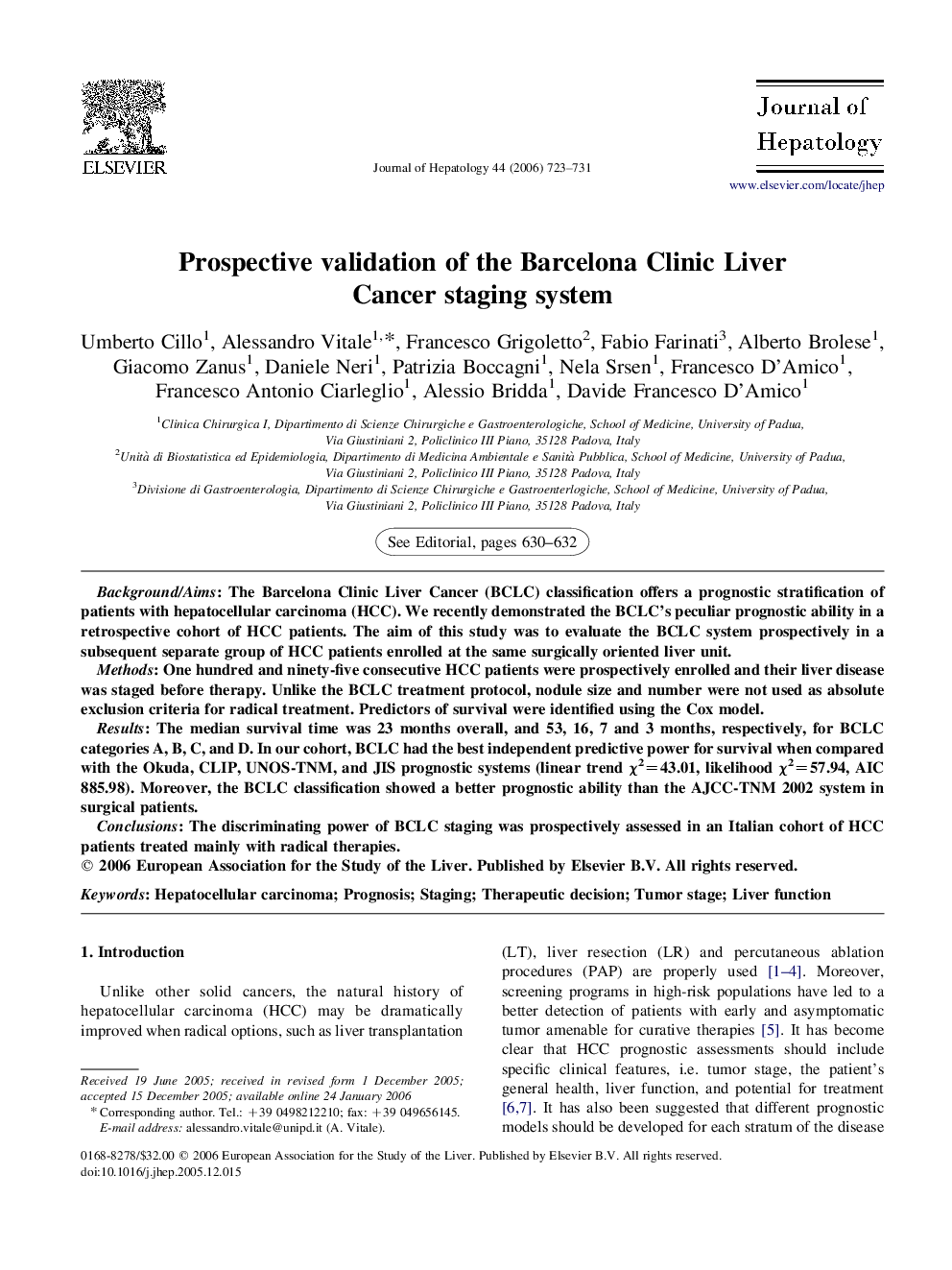| Article ID | Journal | Published Year | Pages | File Type |
|---|---|---|---|---|
| 3314877 | Journal of Hepatology | 2006 | 9 Pages |
Background/AimsThe Barcelona Clinic Liver Cancer (BCLC) classification offers a prognostic stratification of patients with hepatocellular carcinoma (HCC). We recently demonstrated the BCLC's peculiar prognostic ability in a retrospective cohort of HCC patients. The aim of this study was to evaluate the BCLC system prospectively in a subsequent separate group of HCC patients enrolled at the same surgically oriented liver unit.MethodsOne hundred and ninety-five consecutive HCC patients were prospectively enrolled and their liver disease was staged before therapy. Unlike the BCLC treatment protocol, nodule size and number were not used as absolute exclusion criteria for radical treatment. Predictors of survival were identified using the Cox model.ResultsThe median survival time was 23 months overall, and 53, 16, 7 and 3 months, respectively, for BCLC categories A, B, C, and D. In our cohort, BCLC had the best independent predictive power for survival when compared with the Okuda, CLIP, UNOS-TNM, and JIS prognostic systems (linear trend χ2=43.01, likelihood χ2=57.94, AIC 885.98). Moreover, the BCLC classification showed a better prognostic ability than the AJCC-TNM 2002 system in surgical patients.ConclusionsThe discriminating power of BCLC staging was prospectively assessed in an Italian cohort of HCC patients treated mainly with radical therapies.
